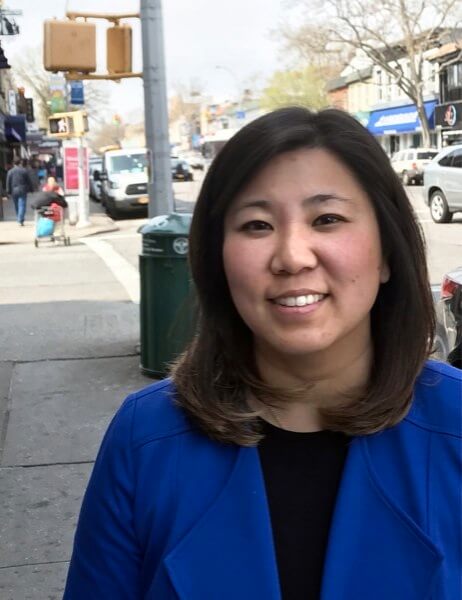The U.S. House approved on Tuesday a measure from Flushing Congresswoman Grace Meng to increase the cultural competency of poll workers ensuring accessible voting for everyone.
Meng’s amendment, which passed on March 12 as part of the For The People Act (H.R. 1), would require that poll worker manuals contain cultural competency training information so that those working at poll sites are aware of the needs of all voters.
The training information would ensure that poll workers are able to help voters who come from diverse backgrounds, live with disabilities, or have limited English proficiency — regardless of gender, sexual orientation, or gender identity. The training will decrease congestion at the voting booth, and ensure that voters are able to cast their ballots without problems or issues.
“Passage of my provision is a huge step forward in ensuring that all voters can fully participate in our democracy,” said Meng. “Many communities throughout the country, such as my district in Queens, are proudly home to different cultures and ethnicities. But diversity should never be a barrier to voting. All voters are entitled to equal access at the ballot box, and this measure would go a long way towards making sure that voters are able to cast their ballots without problems or issues. I urge the Senate to now follow suit and pass H.R. 1 as well.”
Supporters of Meng applauded the measure saying it will increase voter participation.
“We are pleased to see that Representative Meng’s amendment was included in H.R. 1, which helps take a crucial step toward ensuring that all people have access to their fundamental right to vote, including LGBTQ people,” said David Stacy, government affairs director of the Human Rights Campaign. “Cultural differences should never be a barrier to accessing the ballot box. We are grateful to Representative Meng for her leadership and look forward to working with her on additional efforts to advance voting rights for all.”
Terry Ao Minnis, director of Census and Voting Programs at Asian Americans Advancing Justice, said “providing election-related information in-language helps remove barriers to the ballot box allowing Asian American voters to exercise their right to vote.”
Meanwhile, Arturo Vargas, educational fund chief executive officer of the National Association of Latino Elected and Appointed Officials (NALEO), said “By taking actions to make the right to vote more accessible for the Latino community and all Americans, we are embracing the democratic values that make our nation great and increasing civic participation.”
Meng’s other amendment to H.R. 1, a provision to lower the voting age to 16, was not attached to the final version of the bill. It is the Democrats’ signature campaign and voter reform bill which seeks to improve voting rights, campaign finance laws and ethics laws. It passed by a vote of 234-193.





































